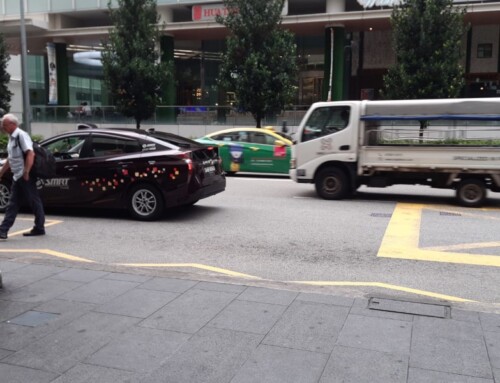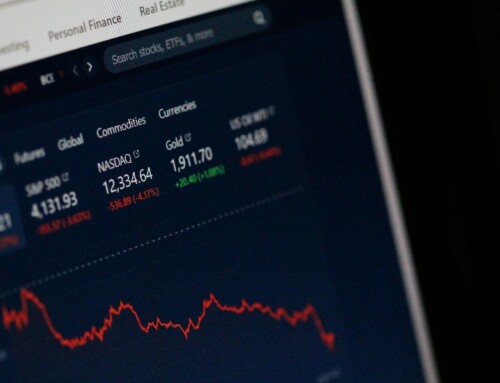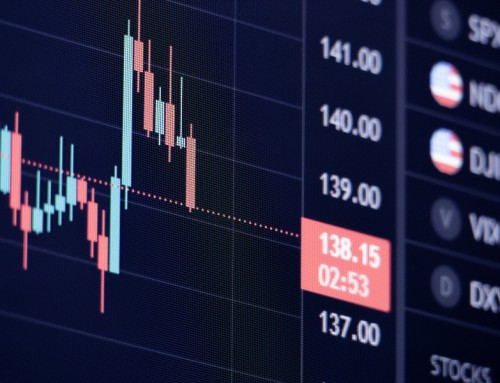Investing these days can be very daunting. Investors need to understand what they are investing and the first port of call would be the Internet. While the Internet is the bearer of information, it should not be equated with the bearer of accurate information. Let me break this down for you…
When the Singapore government raised the Additional Buyers’ Stamp Duty for foreigners purchasing residential property from 30% to 60% on the 27th of April 2023, many property analysts were up in arms. Many considered that such a move was draconian and that the government failed to understand the nuances of the property market. Property agents were trying to make sense of this increase.
“buy now before the ABSD increases even further!”
Fear-mongering does work. Many times I’ve had friends who remarked that they would not rush into a property purchase decision only to commit to a property purchase when innocently walking into a sales gallery of a new project launch. These are not people devoid of intelligence. These are smart individuals with the financial capability to purchase properties in excess of millions of Singapore dollars. How they achieved such financial capabilities is due exactly to their intellect in their relevant professions. Just like the Lehman Brothers collapse in the US was not due to people with a lack of intellect running the investment bank. Instead, it was a culmination of many extremely intelligent individuals who were enshrined in a system that told them that prices could only trend in an upward direction. It was a culmination of greed fueled by easy money and commissions.
“if you say something to yourself often enough, it will become the truth.”
Well, it will not exactly become the truth but you will believe that it is the truth. This is true for information on the Internet. I realised that when I search for any news on the Singapore property market, the bulk of the results that I obtain will be one of immense optimism. That is not to say that it should be all doom and gloom when the market is clearly not veering in that direction. The questions I pose are…
“is property the sole stable investment available?”
“Is there something behind this boom that has been going on for the better part of the last 15 years?”
Let us break down the ABSD increase five months on.
There can be a barrage of considerations when it comes to why the ABSD was increased from 30% to 60% for foreigners. For starters, foreign buyers never made up a huge proportion of the local property market. The local property market was always driven by local demand.
Let us consider a foreigner who makes a purchase of a typical 3-bedroom property which costs about SGD$2 million. The ABSD that that foreigner will have to fork out would be SGD$1.2 million. This of course disregards the usual stamp duty as well as any other acquisition costs. For this discussion let us focus on the ABSD alone. There will always be some who will comment that the foreigner believes that Singapore property will increase by more than 60% in the medium to long term.
My personal take would be that it is still perhaps reasonable for someone to make the case if it were 30% ABSD. Properties in Singapore, on quite a long stretch, might still increase by about 30% in the next five years from 2023. However, to say that it will increase by 60% would be optimistic to the point that it would be illogical. Even if the foreigner had such cash to burn, his property market is not confined to Singapore. He has options aplenty across the globe. He does not have to purchase a property in Singapore. Even if he would like to live in Singapore, renting is much more affordable as compared to forking out SGD$1.2 million ABSD on that SGD$2 million property.
My conclusion: I’ve sat down, appreciated the silence and thought about it. There is almost absolutely no legitimate reason for the foreigner to want to fork out 60% ABSD.
It did not become clear until the news about the SGD$1.8 billion money laundering case came to light.
A money launderer’s primary motivation for purchasing an asset is to allow his ill-gotten gains to see the light of day. It might be money from bribes obtained by corrupt officials for favours or maybe money obtained from illicit human trafficking. Even if he has millions of dollars sitting in his home, he cannot spend the bulk of it. Sure he can use the money to fulfil his daily needs but then if he was an official he most probably would already not have to think much about how he can survive on a daily basis. What money launderers want to achieve is great wealth and the ability to enjoy this great wealth. The former can already be achieved through their illicit activities. However, the latter is something that needs a system to achieve.
Let us consider this proposition from the Wall Street Journal:
A new watch costs less than a second-hand one. The rationale that was given by the Wall Street Journal was that the demand for Rolexes is so high that people are willing to pay more for a used watch as compared to a brand-new one. Not just a bit more. A lot more.
This does not make any sense. This is also happening in Singapore. A luxury watch would cost more in the second-hand market than it would in the retail outlet itself. Imagine this, all the money that was spent by Rolex to build up the customer experience when a customer visits a Rolex outlet. Yet the customer would rather purchase from a second-hand shop at a much higher price. Let us leave out the risk that the watch at the second-hand shop might not be authentic.
There is a rational explanation for this. When a customer goes into the Rolex boutique and makes a purchase, his details are recorded. Be it if he pays via credit card or if he brings cold, hard cash to the boutique. The boutique is obligated to report a suspicious transaction if a client were to pay a significant amount in cash. These details can be extracted by the authorities whenever required. However, in the second-hand market, there is no such requirement. If a luxury watch is traded on the second-hand market, there is no need for the seller to collect details of the buyer. Imagine you selling something on an online platform. In Singapore’s case, it would be a platform like Carousell. Sellers do not ask where the buyers get their cash from. All they are concerned with is that they get the money which they are due. A money launderer would need such anonymity and the second-hand market provides it.
Now look at what was seized in the SGD$1.8 billion money laundering case. There were luxury goods which included luxury watches and designer handbags. These designer handbags came from fashion houses such as Hermes, Chanel, Dior, Louis Vuitton and Prada with some bags costing in excess of $100,000. The sheer value of the total amount of luxury goods seized is staggering. The second-hand market serves a very legitimate purpose for such money launderers.
So why do news agencies, property agents or investment analysts fail to see that what they propagate in the public domain may not be an accurate representation of the truth? The fact is when prices go up or down, we tend to gravitate to what we learned from the textbooks. Does it make sense? Human behaviour dictates that we can use what happened in the past to explain or predict the future. Also, if you are the source of credibility and have some sense of authority in a particular subject matter, then what you propagate would likely become the truth. This is why the Wall Street Journal creates such content to explain a particular phenomenon. It uses what it knows from the past to explain the strange present. If the present is strange enough it should be setting off alarm bells which obviously did not happen. The truth then becomes what the Wall Street Journal propagates. The logic is because the Wall Street Journal is a credible source rather than actual logic itself. It is easy to jump on the bandwagon of what every analyst is saying. It may be in the stock market or the property market. Everyone has a theory. However, in many cases, the theory was conceived not using actual logic itself but was plagiarised from a source of authority.
Investing in such a climate is truly a challenge. Sit down, appreciate the silence, and think about what is truly going on…
Yours sincerely,
Daryl






